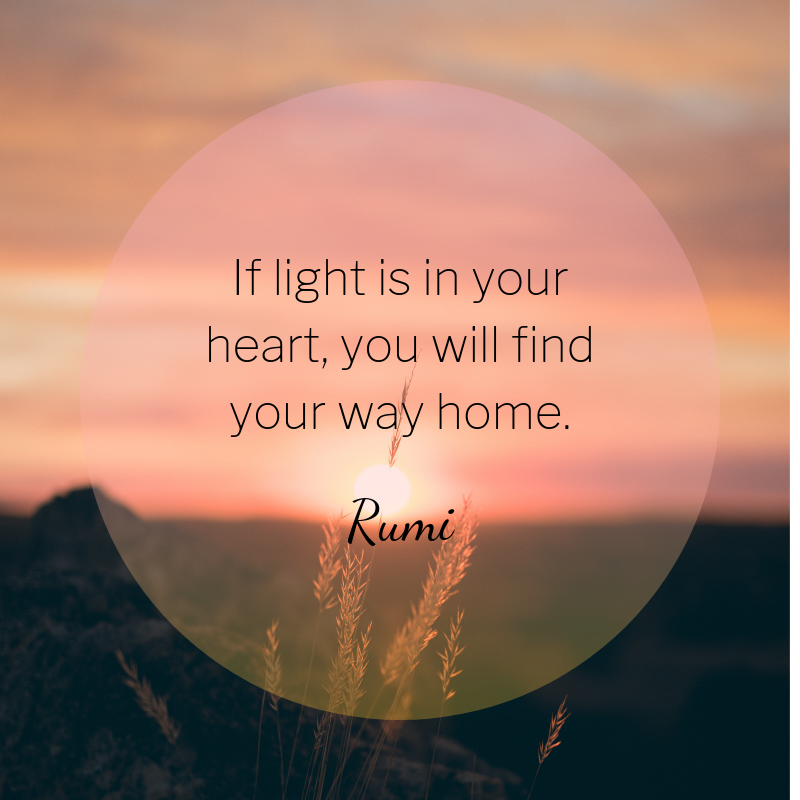
No matter with whom I am working therapeutically, it’s inevitable that we end up making our way to the subject of suffering – physical, emotional, spiritual – and a route to becoming free from it. The temptation to ignore our thoughts, feelings, physical discomfort or pain is strong, and seems logical. But, if you simply build unpleasant experiences into a narrative or sweep the unpleasantness under the rug, you’ve sent it into the dark where, I believe, not only will it not get better, but it will actually grow. Is there another option that might instead decrease our difficulty?
How do we “shine a light” on, i.e. see, what arises within us?
How do we have mindful, present awareness and become an objective observer of our own sensations, emotions, and thoughts?
How do we objectively observe the story that might arise when we look (which we might use to justify the attachment to this suffering)?
If feelings and/or stories arise, how do we look at, yet not identify with them?
How can we have compassion, kindness, and tenderness for ourselves in the face of this?
It is my strong belief, and my experience, that being an objective, compassionate witness to what is happening within ourselves not only doesn’t make what we are seeing worse, but actually decreases our reactivity, decreases the physical and emotional distress, and ultimately decreases the power of what arises!
I have a process I have started calling “shining a light.” Nothing out of our awareness (in the dark) will change. Only in the light will we become more aware of what causes our suffering and the truth of our divine nature.
Try this process:
1. Begin to notice when you have an uncomfortable bodily sensation, thought, or emotion that arises.
2. Then, “shine a light” on it – actively observe it with curiosity; try not to push it away.
3. See it, but don’t identify with or get grabbed by it. What does this mean? Look at what you see as if it’s not yours – no judgment, no wishing it different, no diving onto the story associated with it.
4. As one of my students asked, “What do you do with the stinker once you see it?” The habit to respond and dive in to the feelings and the story is strong, so if you feel it growing as you look, relax further, step back and observe more, and very important – have compassion for yourself.
5. It is through repeated looking with compassion that it begins to decrease its potency and reveal some insight.
This process takes time and practice, and perhaps a bit of courage, too! Each time you practice this, you will make your way, step-by-step, toward greater freedom.
Yours, in service, K.O.

Kathy Ornish is a practicing and certified yoga therapist (c-IAYT) and a certified yoga teacher (E-RYT-500). She serves as Senior Faculty at Gary Kraftsow’s American Viniyoga Institute where she is Faculty Specialist in the Viniyoga Foundations Program for Teaching and Yoga Therapy. Kathy’s yoga therapy practice involves addressing individual’s structural, physiological, and emotional conditions. Her primary emphasis in all her teaching is the breadth of the yoga tradition using the appropriate application of the many tools of yoga in hopes that she can help people realize their highest potential. For more information, please visit her website at www.goodspaceyoga.com
